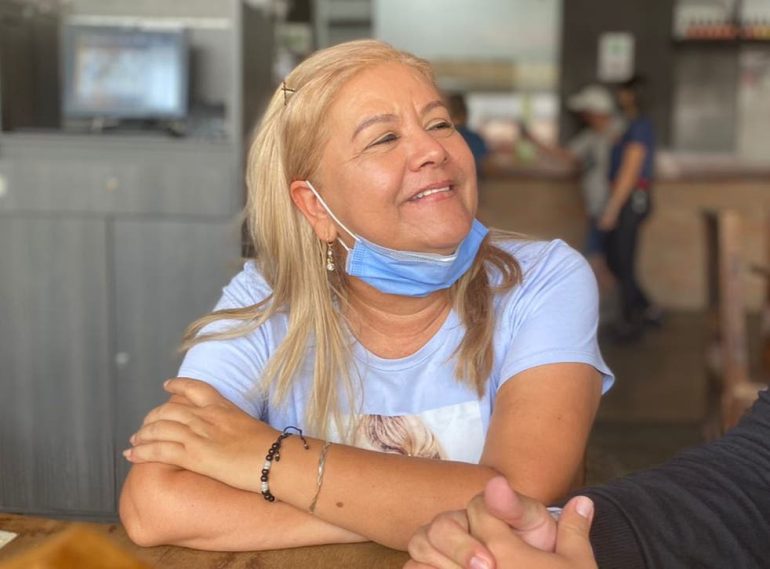On July 23, six years after euthanasia was legalized in Colombia, the Latin American Constitutional Court extended the law to cases of patients who, although not in the final stages of a deadly disease, suffer from "severe physical or mental pain." due to incurable injury or illness.
Many then reacted by talking about promoting a "culture of death" in a country that already mourns hundreds of deaths from organized crime each year.
But in the eyes of 51-year-old Marta Sepulveda it was a salvation. Three years ago, he was diagnosed with amyotrophic lateral sclerosis (ALS): an incurable neurodegenerative disease that causes gradual muscle atrophy leading to limb paralysis, inability to swallow, and respiratory failure. The average life expectancy from the onset of the disease ranges from 2 to 10 years.
https://twitter.com/eldolardiario/status/1451273447510843404?ref_src=twsrc%5Etfw%7Ctwcamp%5Etweetembed%7Ctwterm%5E1451273447510843404%7Ctwgr%5E%7Ctwcon%5Es1_&ref_url=https%3A%2F%2Fwww.in.gr%2F2021%2F10%2F29%2Flife%2Fstories%2Flatiniki-ameriki-dikaioma-sti-zoi-alla-kai-sto-thanato%2F
She herself, although she walks with great difficulty, is not in the final stage of the disease. Nevertheless, she decided to apply as the first patient in Colombia with an incurable disease in a non-terminal stage that would make use of the new provisions of the law, putting an end to her already difficult, in terms of health, life.
Indeed, just four days after the decision of the Constitutional Court, she submitted her request. About a week later, the answer came from the competent service.
Por esa sonrisa lo que sea. pic.twitter.com/uzPkWPqZdk
- Federico Redondo Sepulveda (@ Fede0830) September 28, 2021
An unexpected twist
When she was informed of the decision, her only child, 22-year-old Federico - a law student - burst into tears. They were not tears of despair, nor of course joy.
But all these last months that he took care of her day and night, he says, "he kept telling me the same thing: if I love her, I have to support her in her choice".
Marta finally arranged the appointment with the death at 7 in the morning of October 10, Sunday. Faithful Catholic, he chose it -he said- because "I want the process, the cremation and the Holy Communion to take place on the same day".
"I know God is the one who defines life, but I also know that he does not want to see me suffer," Martha said in a farewell interview on Colombian television.
In the report, which aired earlier this month, she appeared smiling and cheerful, looking relieved and confident about her choice.
Martha Sepúlveda sabe que se va a morir el próximo domingo y sonríe. Serve the first patient with a terminal diagnostic to access euthanasia in Colombia. My hoy report.pic.twitter.com/O8nAbSO2O2
- Juan David Laverde (@ jdlaverde9) October 4, 2021
However, following the opposition of the Catholic Church, which publicly called for a review of the decision, the Interdisciplinary Committee of the competent Colombian Institute of Pain issued - on the eve of euthanasia, only on the afternoon of October 9 - annulled the initial case. of March.
She is not "suffering to such an extent", they ruled, judging afterwards that the 51-year-old does not meet the criteria.
With the full support of her family (she has 11 siblings), Marta is now preparing to appeal the annulment decision.
A PROPÓSITO DE LA EUTANASIA DE MARTHA SEPÚLVEDA https://t.co/MfYPHuoyDS through @lacoladerata
- matador (@ Matador000) October 23, 2021
"Right to a dignified death"
Her case has now sparked public controversy in Colombia, a country of great controversy anyway.
The new 1991 constitution, for example, emphasized "respect for human dignity" and emphasized the separation of powers between state and church, while at the same time giving more or less "pardon" to the powerful drug cartels, then banning the extradition of Colombians to abroad, while they were decimating its population in many ways.
According to Eduardo Dith Amado, director of the Institute of Bioethics at Papal University in Bogota, it's a result of these constitutional inconsistencies that Colombia was the first in Latin America to legalize euthanasia in 2015 for terminally ill patients up to six months old.
To date, 157 eligible people have made that choice, according to official figures, with an Invamer poll showing that 72% of Colombians agree with the euthanasia law.
At the same time, however, under the deep influence of the Catholic Church, the Colombian authorities imposed strict conditions on abortions.
#MorirEnColombia Martha Sepúlveda's euthanasia collection has generated a great deal of debate regarding individual liberties and access to the highest degree of dignity in Colombia. Hablamos con abogada https://t.co/z0neIoo7rd pic.twitter.com/8Iqnfa74pJ
- 070 (@cerosetenta) October 19, 2021
Leaving aside these strong Colombian contradictions, voices in favor of euthanasia are now intensifying in Latin America.
Relevant bills are already under consideration in Uruguay, Chile and Argentina (in the latter two the law already allows inpatients to refuse any mechanical life extension procedure).
In Peru, a federal court exceptionally allowed euthanasia of a polymyositis patient in March, bypassing the three-year prison sentence for those who would assist her in the process.
Controversial, euthanasia is already legal in the Netherlands (the first country to decriminalize it in 2002), Belgium, Canada, Luxembourg, New Zealand and, most recently, Spain.
In the US, it is allowed for terminally ill patients in ten states. The last addition to this list was, last April, New Mexico.
in.gr
